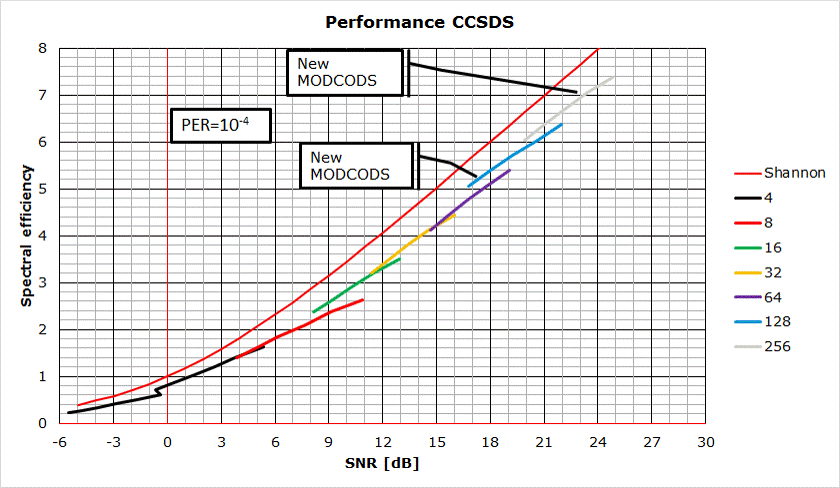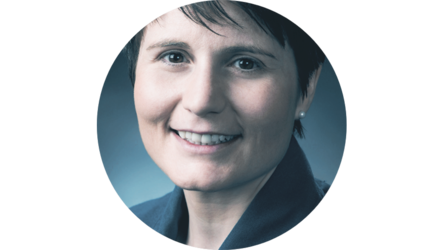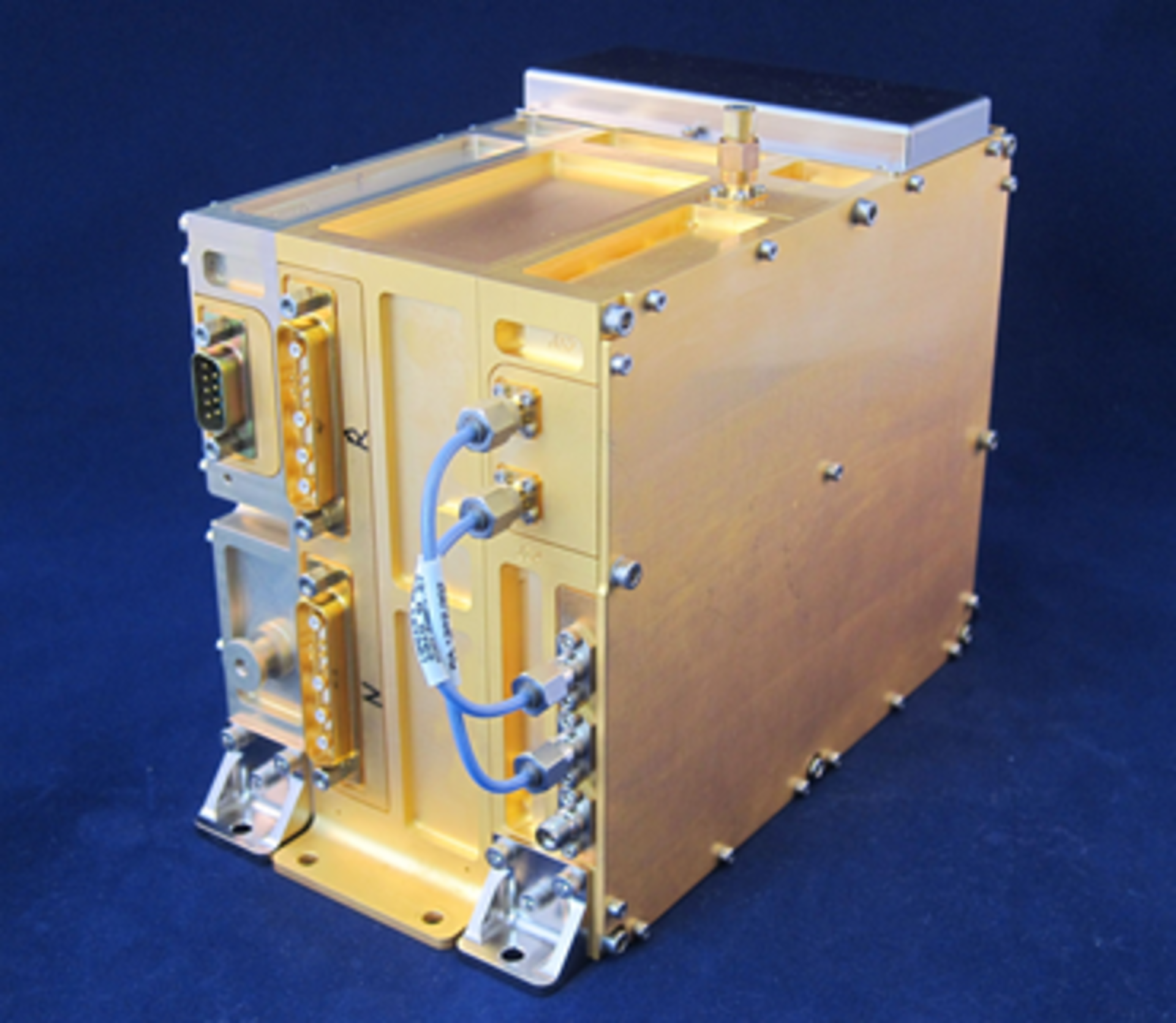EGRET - Next Generation High Rate Telemetry
| Programme: | TRP Workplan | Achieved TRL: | 3 |
| Reference: | T106-402ET | Closure: | 2017 |
| Contractor(s): | Politecnico di Torino (IT), Universita’ di Parma (IT), TESAT (DE) | ||
Despite the progress made concerning data compression, several factors are pushing future Earth Observation missions towards an ever-increasing data return, and direct LEO-to ground systems are migrating from the X-band to the K-band. Geometrical and atmospheric factors contribute to a large dynamic range of the power, a fact that gives rise to the concept of link adaptation. To support link adaptation, the Consultative Committe for Space Data Systems (CCSDS) 131.2-B-1 standard waveform includes a range of Modulation & Coding options (ModCods), with spectral efficiencies up to 5.4 bit/sec/Hz (64APSK). However, recent studies demonstrated that this set of CCSDS ModCods saturates above a certain elevation angle, beyond which a growing gap with respect to achievable capacity is witnessed.
Objectives
- To extend the CCSDS Waveform beyond 64APSK
- To study advanced signal processing techniques for spectral efficiency improvement
- To define the Next Generation CCSDS Waveform (for standardization)
- To provide the relevant Technology Support & Roadmap

Achievements and status
This study provides a roadmap for the long-term evolution of future direct LEO-to-ground Earth Exploration Satellite Services (EESS) systems, addressing their overall architecture with a view of reaching the full data rate capabilities, while at the same time optimizing the power consumption and operational flexibility.
Benefits
Increased available signal-to-noise and spectral efficiency ranges ([0,30] dB, [0.4-7.4] bit/sec/Hz) with performance close to the theoretical limit. Maximization of the throughput on a single pass.
Next steps
Updating of the CCSDS standard to include the 10 newly developed ModCods to support 128 and 256 points constellations. Development of hardware prototype in support of the new ModCods.















 Germany
Germany
 Austria
Austria
 Belgium
Belgium
 Denmark
Denmark
 Spain
Spain
 Estonia
Estonia
 Finland
Finland
 France
France
 Greece
Greece
 Hungary
Hungary
 Ireland
Ireland
 Italy
Italy
 Luxembourg
Luxembourg
 Norway
Norway
 The Netherlands
The Netherlands
 Poland
Poland
 Portugal
Portugal
 Czechia
Czechia
 Romania
Romania
 United Kingdom
United Kingdom
 Slovenia
Slovenia
 Sweden
Sweden
 Switzerland
Switzerland




























